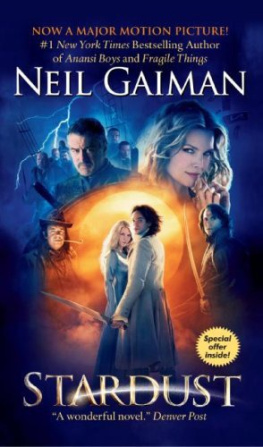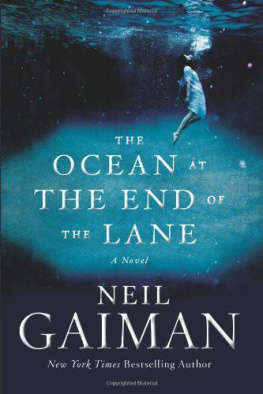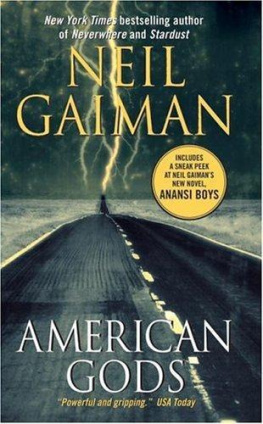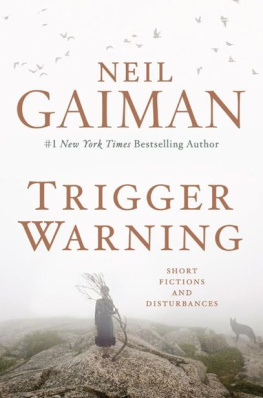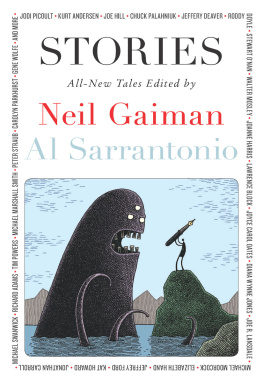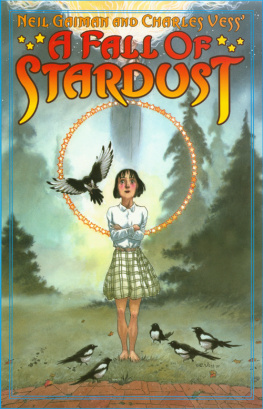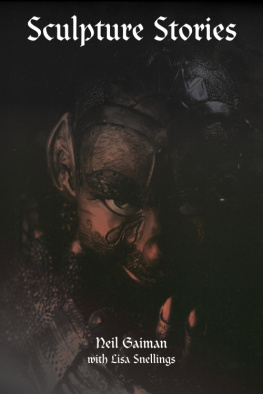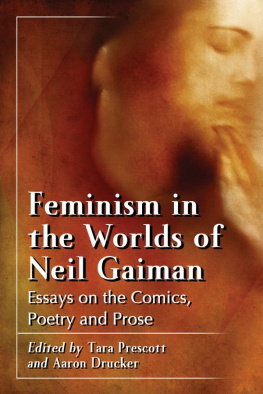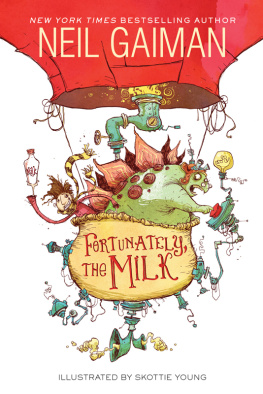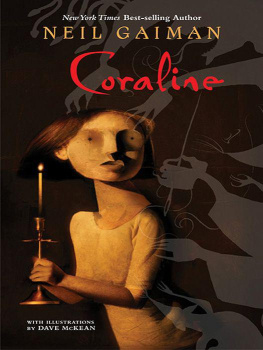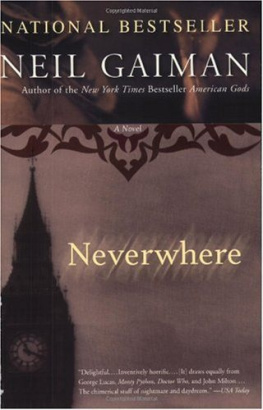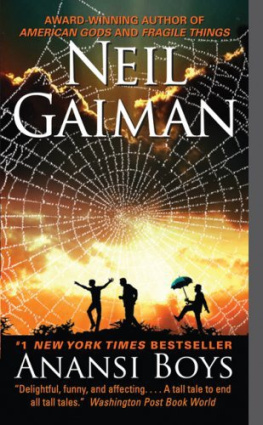Neil Gaiman - Stardust
Here you can read online Neil Gaiman - Stardust full text of the book (entire story) in english for free. Download pdf and epub, get meaning, cover and reviews about this ebook. year: 2009, publisher: HarperCollins, genre: Adventure. Description of the work, (preface) as well as reviews are available. Best literature library LitArk.com created for fans of good reading and offers a wide selection of genres:
Romance novel
Science fiction
Adventure
Detective
Science
History
Home and family
Prose
Art
Politics
Computer
Non-fiction
Religion
Business
Children
Humor
Choose a favorite category and find really read worthwhile books. Enjoy immersion in the world of imagination, feel the emotions of the characters or learn something new for yourself, make an fascinating discovery.
- Book:Stardust
- Author:
- Publisher:HarperCollins
- Genre:
- Year:2009
- Rating:3 / 5
- Favourites:Add to favourites
- Your mark:
- 60
- 1
- 2
- 3
- 4
- 5
Stardust: summary, description and annotation
We offer to read an annotation, description, summary or preface (depends on what the author of the book "Stardust" wrote himself). If you haven't found the necessary information about the book — write in the comments, we will try to find it.
Stardust — read online for free the complete book (whole text) full work
Below is the text of the book, divided by pages. System saving the place of the last page read, allows you to conveniently read the book "Stardust" online for free, without having to search again every time where you left off. Put a bookmark, and you can go to the page where you finished reading at any time.
Font size:
Interval:
Bookmark:
Stardust
Neil Gaiman
T ABLE OF C ONTENTS
S ONG
Go, and catch a falling star,Get with child a mandrake root,
Tell me, where all past years are,
Or who cleft the Devil's foot,
Teach me to hear mermaids singing,
Or to keep off envy's stinging,
And find
What wind
Serves to advance an honest mind.If thou be'est born to strange sights,
Things invisible to see,
Ride ten thousand days and nights,
Till age snow white hairs on thee,
Thou, when thou return'st, wilt tell me
All strange wonders that befell thee,
And swear
Nowhere
Lives a woman true, and fair.If thou find'st one, let me know,
Such a pilgrimage were sweet,
Yet do not, I would not go,
Though at next door we might meet,
Though she were true when you met her,
And last, till you write your letter,
Yet she
Will be
False, ere I come, to two, or three.John Donne, 1572-1631
C HAPTER O NE
In Which We Learn of the Village of Wall, and of the Curious Thing That Occurs There Every Nine Years
There was once a young man who wished to gain his Heart's Desire.
And while that is, as beginnings go, not entirely novel (for every tale about every young man there ever was or will be could start in a similar manner) there was much about this young man and what happened to him that was unusual, although even he never knew the whole of it.
The tale started, as many tales have started, in Wall.
The town of Wall stands today as it has stood for six hundred years, on a high jut of granite amidst a small forest woodland. The houses of Wall are square and old, built of grey stone, with dark slate roofs and high chimneys; taking advantage of every inch of space on the rock, the houses lean into each other, are built one upon the next, with here and there a bush or tree growing out of the side of a building.
There is one road from Wall, a winding track rising sharply up from the forest, where it is lined with rocks and small stones. Followed far enough south, out of the forest, the track becomes a real road, paved with asphalt; followed further the road gets larger, is packed at all hours with cars and trucks rushing from city to city. Eventually the road takes you to London, but London is a whole night's drive from Wall.
The inhabitants of Wall are a taciturn breed, falling into two distinct types: the native Wall-folk, as grey and tall and stocky as the granite outcrop their town was built upon; and the others, who have made Wall their home over the years, and their descendants.
Below Wall on the west is the forest; to the south is a treacherously placid lake served by the streams that drop from the hills behind Wall to the north. There are fields upon the hills, on which sheep graze. To the east is more woodland.
Immediately to the east of Wall is a high grey rock wall, from which the town takes its name. This wall is old, built of rough, square lumps of hewn granite, and it comes from the woods and goes back to the woods once more.
There is only one break in the wall; an opening about six feet in width, a little to the north of the village.
Through the gap in the wall can be seen a large green meadow; beyond the meadow, a stream; and beyond the stream there are trees. From time to time shapes and figures can be seen, amongst the trees, in the distance. Huge shapes and odd shapes and small, glimmering things which flash and glitter and are gone. Although it is perfectly good meadow-land, none of the villagers has ever grazed animals on the meadow on the other side of the wall. Nor have they used it for growing crops.
Instead, for hundreds, perhaps for thousands of years, they have posted guards on each side of the opening on the wall, and done their best to put it out of their minds.
Even today, two townsmen stand on either side of the opening, night and day, taking eight-hour shifts. They carry hefty wooden cudgels. They flank the opening on the town side.
Their main function is to prevent the town's children from going through the opening, into the meadow and beyond. Occasionally they are called upon to discourage a solitary rambler, or one of the few visitors to the town, from going through the gateway.
The children they discourage simply with displays of the cudgel. Where ramblers and visitors are concerned, they are more inventive, only using physical force as a last resort if tales of new-planted grass, or a dangerous bull on the loose, are not sufficient.
Very rarely someone comes to Wall knowing what they are looking for, and these people they will sometimes allow through. There is a look in the eyes, and once seen it cannot be mistaken.
There have been no cases of smuggling across the wall in all the Twentieth Century, that the townsfolk know of, and they pride themselves on this.
The guard is relaxed once every nine years, on May Day, when a fair comes to the meadow.
The events that follow transpired many years ago. Queen Victoria was on the throne of England, but she was not yet the black-clad widow of Windsor: she had apples in her cheeks and a spring in her step, and Lord Melbourne often had cause to upbraid, gently, the young queen for her flightmess. She was, as yet, unmarried, although she was very much in love.
Mr. Charles Dickens was serializing his novel Oliver Twist ; Mr. Draper had just taken the first photograph of the moon, freezing her pale face on cold paper; Mr. Morse had recently announced a way of transmitting messages down metal wires.
Had you mentioned magic or Faerie to any of them, they would have smiled at you disdainfully, except, perhaps for Mr. Dickens, at the time a young man, and beardless. He would have looked at you wistfully.
People were coming to the British Isles that spring. They came in ones, and they came in twos, and they landed at Dover or in London or in Liverpool: men and women with skins as pale as paper, skins as dark as volcanic rock, skins the color of cinnamon, speaking in a multitude of tongues. They arrived all through April, and they traveled by steam train, by horse, by caravan or cart, and many of them walked.
At that time Dunstan Thorn was eighteen, and he was not a romantic.
He had nut-brown hair, and nut-brown eyes, and nut-brown freckles. He was middling tall, and slow of speech. He had an easy smile, which illuminated his face from within, and he dreamed, when he daydreamed in his father's meadow, of leaving the village of Wall and all its unpredictable charm, and going to London, or Edinburgh, or Dublin, or some great town where nothing was dependent on which way the wind was blowing. He worked on his father's farm and owned nothing save a small cottage in a far field given to him by his parents.
Visitors were coming to Wall that April for the fair, and Dunstan resented them. Mr. Bromios's inn, the Seventh Magpie , normally a warren of empty rooms, had filled a week earlier, and now the strangers had begun to take rooms in the farms and private houses, paying for their lodgings with strange coins, with herbs and spices, and even with gemstones. As the day of the fair approached the atmosphere of anticipation mounted. People were waking earlier, counting days, counting minutes. The guards on the gate, at the sides of the wall, were restive and nervous. Figures and shadows moved in the trees at the edge of the meadow.
In the Seventh Magpie , Bridget Comfrey, who was widely regarded as the most beautiful pot-girl in living memory, was provoking friction between Tommy Forester, with whom she had been seen to step out over the previous year, and a huge man with dark eyes and a small, cluttering monkey.
The man spoke little English, but he smiled expressively whenever Bridget came by.
In the pub's taproom the regulars sat in awkward proximity to the visitors, speaking so: "It's only every nine years."
Next pageFont size:
Interval:
Bookmark:
Similar books «Stardust»
Look at similar books to Stardust. We have selected literature similar in name and meaning in the hope of providing readers with more options to find new, interesting, not yet read works.
Discussion, reviews of the book Stardust and just readers' own opinions. Leave your comments, write what you think about the work, its meaning or the main characters. Specify what exactly you liked and what you didn't like, and why you think so.

